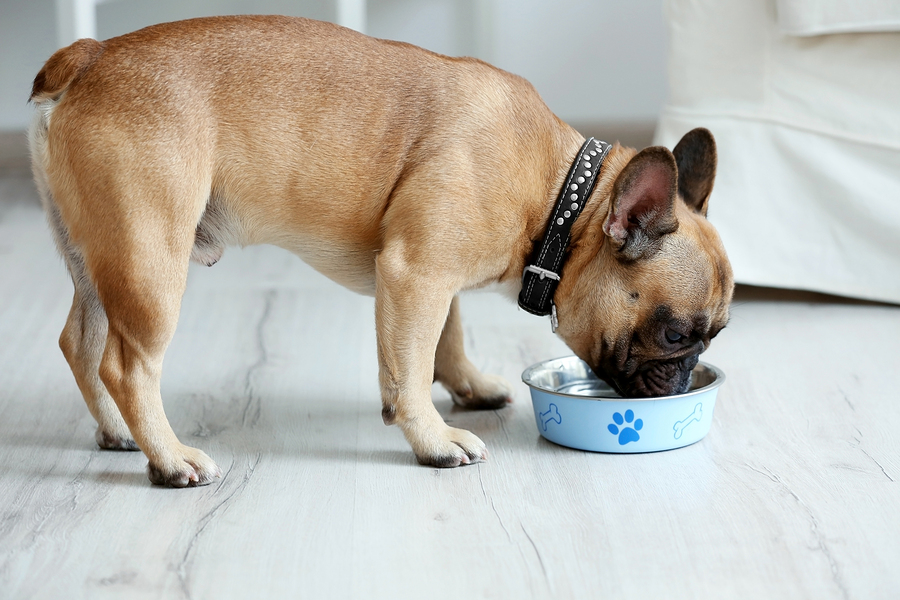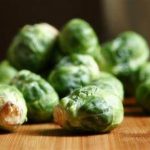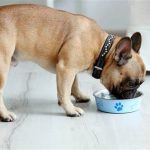Can French Bulldogs Eat Cauliflower?
French Bulldogs, also known as Frenchies, are a small breed of domestic dog that is known for its affectionate and playful nature.
They have become increasingly popular over the last few years due to their unique look and personality. French Bulldogs are considered a low-maintenance breed when it comes to their diet and exercise needs.
However, it is important to understand what they can eat in order to keep them healthy. So, can French bulldogs eat cauliflower?
French bulldogs can eat cauliflower. However, their digestive systems are not used to it, so they may throw up a little bit.
Can French Bulldogs Eat Cauliflower?
Contents
- 1 Can French Bulldogs Eat Cauliflower?
- 2 What Do French Bulldogs Eat?
- 3 Why Is It Important to Understand a French Bulldog’s diet?
- 4 Is Cauliflower Safe for French Bulldogs to Eat?
- 5 Nutritional Benefits of Cauliflower for French Bulldogs
- 6 Nutritional Risks of Feeding Cauliflower to French Bulldogs
- 7 How Much Cauliflower Should Be Fed to a French Bulldog?
- 8 Other Vegetables That Are Safe for French Bulldogs to Eat
- 9 Conclusion
French Bulldogs are small dogs with giant personalities.
They’re known for being affectionate and loyal, and they make excellent companions. However, French Bulldogs sometimes develop health issues due to their short muzzles and flat faces.
For example, a common health issue for French Bulldogs is difficulty breathing. Fortunately, they have a solution: cauliflower.
Cauliflower is high in fiber, which can help reduce nasal congestion, allowing French Bulldogs to breathe easier. Cauliflower is also rich in vitamin C, which can boost the immune system and prevent health problems.
Cauliflower is a safe and nutritious solution for French Bulldogs suffering from breathing problems.
What Do French Bulldogs Eat?
French Bulldogs need a balanced diet that contains protein, carbohydrates, fats, vitamins, minerals, and water.
They should be fed high-quality dog food that is specifically made for their size and age.
It is also important to make sure that the food contains all the necessary nutrients in order to keep them healthy.
Additionally, you should also provide your Frenchie with treats throughout the day as a reward for good behavior or just simply as an extra snack.
Why Is It Important to Understand a French Bulldog’s diet?
It is essential to understand what your Frenchie can eat in order to maintain its health and well-being.
Certain foods can be toxic or unhealthy for your pup. So, it is important to know what they can safely consume.
Feeding them the wrong food can lead to digestive problems and other health issues, such as obesity or diabetes.
As cute as pets are, they can be quite demanding when it comes to food.
This is why it’s important to feed them the right food. For example, cats and dogs need lots of protein in their diet.
However, giving them low-quality meat or fish can lead to health problems. Furthermore, some dog food is unhealthy as well.
For example, dry dog food lacks moisture, so it’s harder for them to digest it. This can lead to digestive problems and other health issues, such as obesity or diabetes.
Therefore, it’s important to check your pet’s food to ensure it’s healthy and not full of harmful ingredients.
Is Cauliflower Safe for French Bulldogs to Eat?
Yes, cauliflower is safe for French Bulldogs to eat in moderation.
Cauliflower is a cruciferous vegetable that contains several essential vitamins and minerals, such as vitamin C, vitamin K, folate, and dietary fiber.
It also has antioxidant properties, which can help protect against certain diseases such as cancer and heart disease.
However, it should not make up more than 10% of your pup’s daily caloric intake, as it does contain some fat content, which could lead to weight gain if consumed in large quantities.
Nutritional Benefits of Cauliflower for French Bulldogs
Cauliflower provides several nutritional benefits for your Frenchie, including:
- Vitamin C helps support healthy skin and hair while boosting the immune system.
- Vitamin K helps with blood clotting.
- Folate helps with cell growth and development.
- Dietary fiber helps aid digestion.
- Antioxidants helps protect against certain diseases such as cancer and heart disease.
Nutritional Risks of Feeding Cauliflower to French Bulldogs
Although cauliflower has many nutritional benefits, there are some risks associated with feeding this vegetable too often or in large quantities:
High Fat Content
If consumed in large amounts, this could lead to weight gain and can lead to other health issues such as heart disease, which is extremely harmful to your Frenchie.
Herbicide Residue
If cauliflower is grown using pesticides, then those pesticides could end up in the vegetable as well as in your French Bulldog’s digestive system, which could lead to potential health problems.
Toxic Chemicals
Genetically-modified foods can lead to health problems such as food allergies and digestive disorders.
Gas Production
Eating too much cauliflower may cause gas production, which could be uncomfortable for your pup as well as hazardous if not properly controlled. Moderation is key when it comes to feeding cauliflower to your Frenchie.
So, always ensure that the portion size is appropriate for your pup’s size.
How Much Cauliflower Should Be Fed to a French Bulldog?
Cauliflower should only make up 10% of your pup’s daily caloric intake, so you should limit how much you feed them each day.
A good rule of thumb is no more than one cup per day, divided into two meals (morning and evening).
If you want, you can mix the cauliflower with other vegetables, such as broccoli or carrots, in order to provide variety in their diet without overfeeding them on any one type of vegetable.
Other Vegetables That Are Safe for French Bulldogs to Eat
In addition to cauliflower, there are other vegetables that are safe for Frenchies, including carrots, celery, green beans, sweet potatoes, squash, and zucchini (in moderation).
All these vegetables provide essential nutrients while being low in calories, so they won’t cause weight gain if consumed regularly.
You should always avoid feeding dogs onions or garlic since these can be toxic if eaten by dogs.
Also Read: Can French Bulldogs Eat Ground Beef?
Conclusion
In conclusion, French Bulldogs can eat cauliflower. However, cauliflower is not a good alternative to rice or potatoes because it’s low in carbohydrates and protein.
Overall, French Bulldogs can eat cauliflower, but too much can cause digestive problems and diarrhea.




